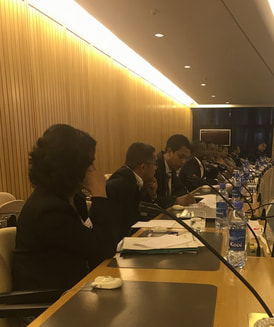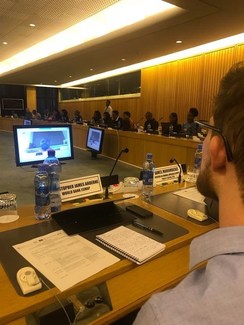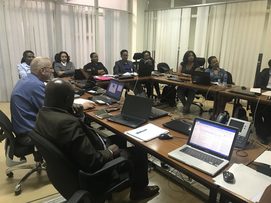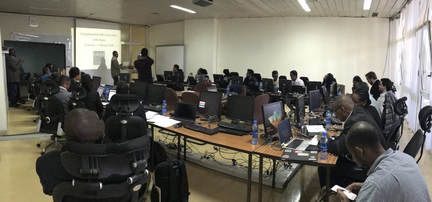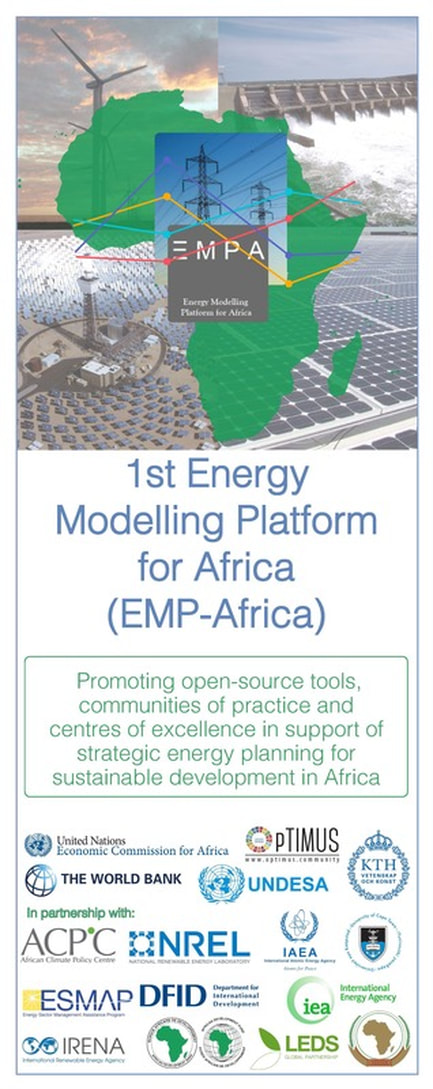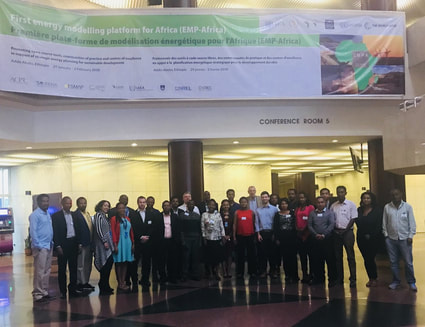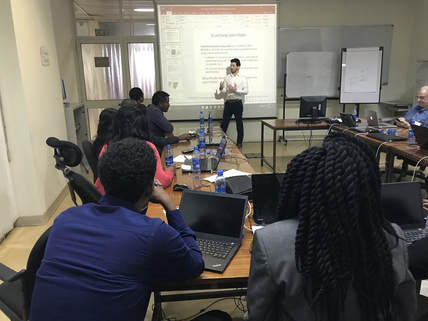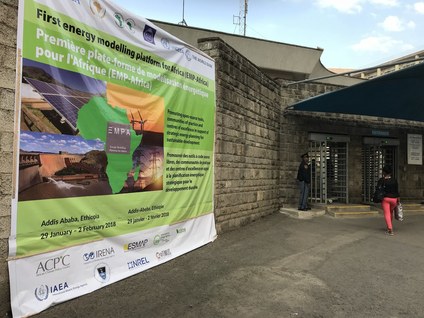EMP - Africa 2018
|
Briefing notes on the 1st Energy Modelling Platform for Africa (EMP-A 2018)
The United Nations Economic Commission for Africa (UNECA)'s African Climate Policy Centre (ACPC) and its partners (KTH, OpTIMUS, IDEP, UNDP, UNDESA, WBG, University of Cambridge, AUC, DFID, IRENA, ESMAP, AfDB, IAEA, IEA, NREL, FEEEM, University of Cape Town, University of Mauritius, Pan African University, Energy Strategy Reviews) hosted the inaugural two-day Energy Modelling Platform for Africa investment and policy dialogue on the 29-30th January. The event supports optimized investments for the energy transition in Africa to meet the continents growing demand on the one hand, and access its large resource base on the other. The dialogue was followed by three days of intense training in the use of best of breed open source tools OSeMOSYS.org (used for medium to long term energy investment) and OnSSET.org (used for geo-spatial electricity access planning). The specific objectives of the platform's investment and policy dialogue were to:
In her opening remarks, Fatima Denton, the Economic Commission for Africa’s Special Initiatives Division Director, observed that about 600 million people in Africa still lacked access to electricity, despite the continent being endowed with all forms of fossil and renewable energy resources. “This paradox of Africa’s energy abundance and scarcity calls for urgent action and strategies for energy transformation necessary to unleash and catalyze social and economic transformation to meet the development goals of the continent,” she said. The EMP-A, while driven by African partners, draws some parallels from a sister event, the EMP-Europe. The EnergyModellingPlatform.eu is the premier meeting between energy system analysts and various branches of the European Commission and is lead by DG Research activities. The training event which was supported by the Royal Institute of Technology (KTH) in Sweden worked with over 30 trainees. They ranged from government officials from across the continent, as well as academics and local UNECA analysts. The idea for an energy modeling platform arose prior to COP21, driven by the deficit of capacity for energy modelling in Africa. At present OSeMOSYS.org and OnSSET.org models are available for all African countries. Training activities are to be expanded at the EMP-2019 to include more participants and allow for parallel sessions for teaching related tools and project meetings. EMP-2019 is to be hosted at the University of Cape Town.
A full press release can be found on United Nations Economic Commission for Africa (UNECA) website here. A global Summer School on Modelling Tools for Sustainable Development organised by the 'Open Tools and Upskilling for Sustainable-Development' (OpTIMUS) community of practice will be held at the ICTP on 04 - 29 June 2018, Trieste, Italy. More information can be found here. The presentations of the EMP-A 2018 can be found here.
Workshop material of the EMP-A 2018 can be found here.
|
|
The concept note of the EMP-A 2018 can be found here:
|
| ||
|
The meeting & training program of EMP-A 2018 can be found here:
|
| ||
Organizers of EMP-A 2018:
Key contributors: United Nations Economic Commission for Africa (UNECA), African Climate Policy Centre (ACPC), United Nations Development Programme (UNDP), United Nations Department of Economic and Social Affairs (UN DESA), KTH Royal Institute for Technology, University of Cambridge
African Centers of Excellence: African Institute for Economic Development and Planning (IDEP) Dakar, University of Cape Town, University of Mauritius, Pan African University
Other partners: The World Bank Group (WBG), African Union Commision (AUC), African Climate Policy Centre (ACPC), Department for International Development (DFID), International Renewable Energy Agency (IRENA), Energy Sector Management Assistance Program (ESMAP), African Development Bank (AfDB), International Atomic Energy Agency (IAEA), International Energy Agency (IEA), National Renewable Energy Laboratory (NREL), Fondazione Eni Enrico Mattei (FEEEM), Energy Strategy Reviews
Key contributors: United Nations Economic Commission for Africa (UNECA), African Climate Policy Centre (ACPC), United Nations Development Programme (UNDP), United Nations Department of Economic and Social Affairs (UN DESA), KTH Royal Institute for Technology, University of Cambridge
African Centers of Excellence: African Institute for Economic Development and Planning (IDEP) Dakar, University of Cape Town, University of Mauritius, Pan African University
Other partners: The World Bank Group (WBG), African Union Commision (AUC), African Climate Policy Centre (ACPC), Department for International Development (DFID), International Renewable Energy Agency (IRENA), Energy Sector Management Assistance Program (ESMAP), African Development Bank (AfDB), International Atomic Energy Agency (IAEA), International Energy Agency (IEA), National Renewable Energy Laboratory (NREL), Fondazione Eni Enrico Mattei (FEEEM), Energy Strategy Reviews

